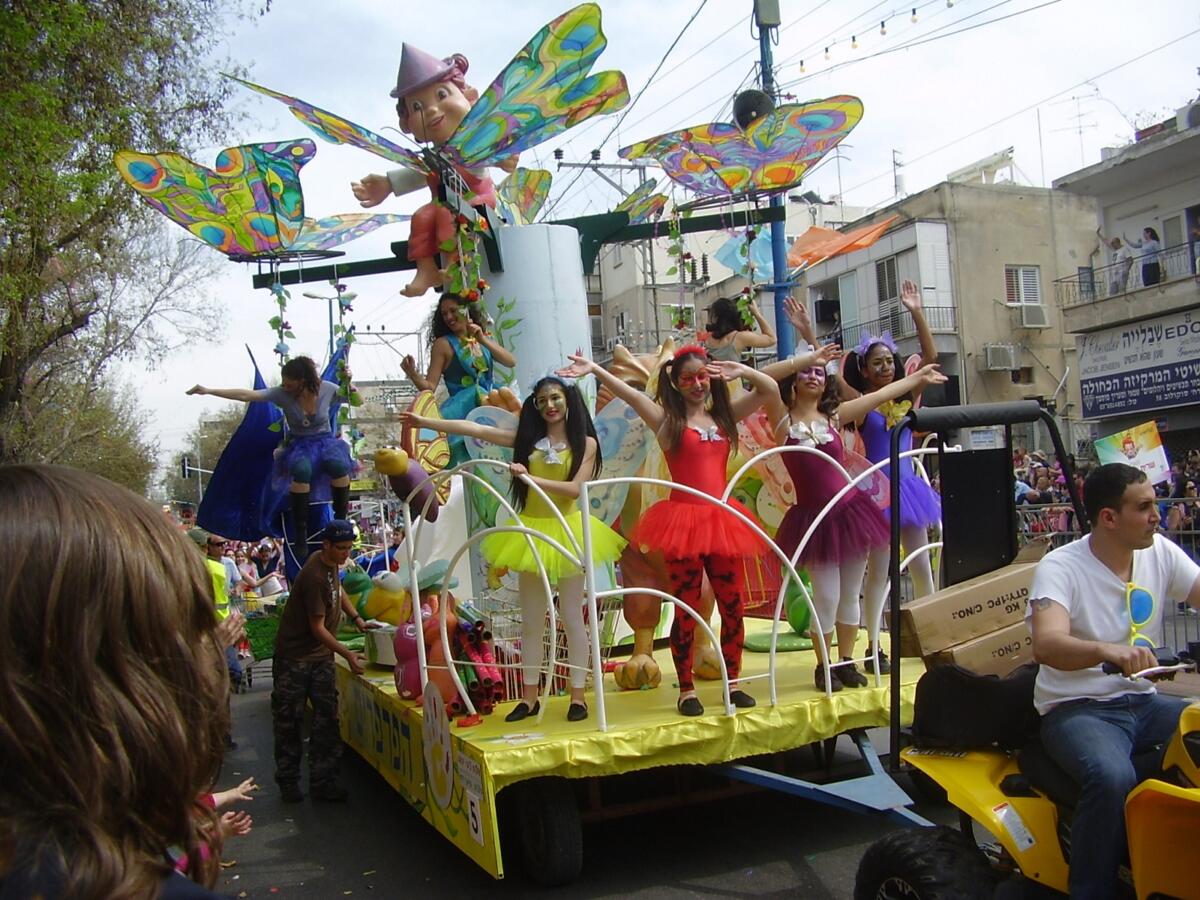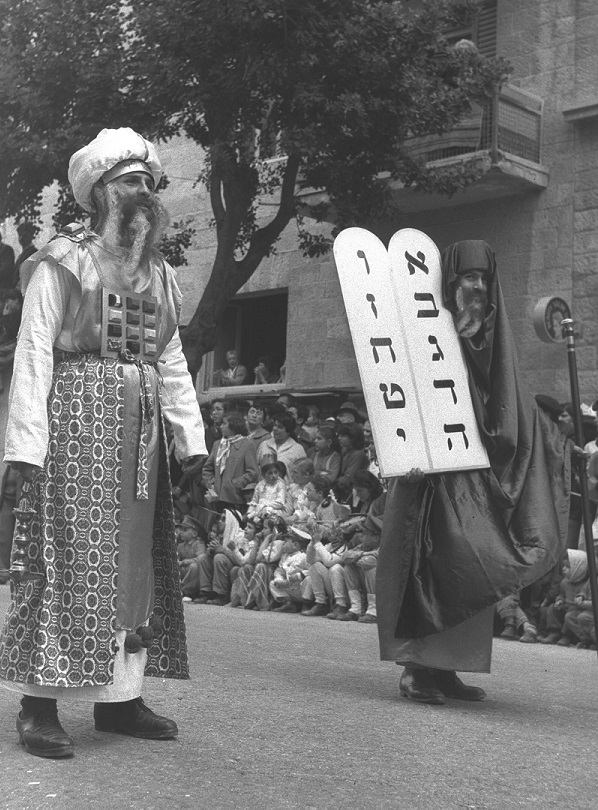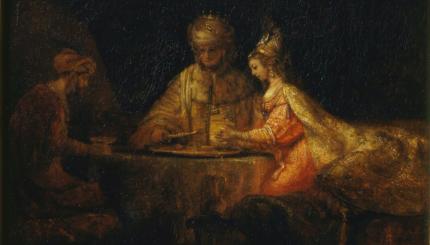Some Purim traditions — like hearing the Megillah read aloud and giving gifts to the poor (matanot l’evyonim) — are inscribed in the Talmud and universal among Jews, whether they live in the Diaspora or in Israel. The Talmud also encourages merriment on this holiday, but that plays out differently across the globe.
In Diaspora, Purim celebrations tend to center on the synagogue, where Jews spend a few hours. They dress in costume, hold Purim spiels, host carnivals, give one another gifts, trade l’chaims, and make merry to celebrate an ancient Jewish escape from genocide. Purim celebrations in Israel, however, where in many places the majority of the population is Jewish, last all day (sometimes two days!) and spill out into the street. In major cities, it’s common for the streets to be filled with thousands of costumed partygoers from across the country who have traveled to celebrate with friends and family. These public celebrations start on the evening of Purim and stretch until the next evening.
Two Purims
Purim is celebrated by most Jews on 14 Adar. However, Jews in Jerusalem instead observe Purim on 15 Adar, known as Shushan Purim. Shushan Purim is only celebrated in a city that has been walled since the days of Joshua (circa 1250 B.C.E.), and Jerusalem is the only place where Jewish authorities are confident that Shushan Purim should still be observed.
Some Israelis, regardless of where they live, plan their Purim itinerary carefully so that they can celebrate both Purim and Shushan Purim. They will celebrate Purim on 14 Adar outside Jerusalem and then travel to Jerusalem in time to enjoy another 24 festive hours.

Help us keep Jewish knowledge accessible to millions of people around the world.
Your donation to My Jewish Learning fuels endless journeys of Jewish discovery. With your help, My Jewish Learning can continue to provide nonstop opportunities for learning, connection and growth.
Fun for Everyone
In many Diaspora Jewish communities, Purim celebrations are often family oriented: synagogue carnivals, costume parades and crafts can be just as prominent as adult-oriented Purim spiels and festive wine banquets (seudot). In Israel, the raucous, partying aspect of Purim is taken just as seriously by adults.
While Purim is not a day on which labor is prohibited, Jewish organizations in Diaspora do not usually close for this holiday, universities and some workplaces in Israel, however, are closed on Purim, and legally, Jewish Israelis can choose to take Purim off as a paid holiday. While most secular Israelis may skip other holidays, both secular and religious Jewish Israelis partake in traditional Purim observances like hearing the megillah, preparing mishloach manot, giving tzadekah and enjoying a festive meal.
The Adloyada
In Israel, Purim is also a common time for desert retreats, raves, circuses, music festivals, theater performances and other organized fun. The most notable widespread Purim celebration is the adloyada. Colloquially, this phrase refers to Purim parades, but the term actually comes from the talmudic commandment to drink “until one doesn’t know” (Aramaic; ad d’lo yada) — meaning one cannot distinguish between the name of Haman (the villain) and Mordechai (the hero).
The first adloyada was organized in Tel Aviv in 1912. Today, an adloyada is often organized by the local municipality and features colorful processions of dancers, musicians, cartoonish characters, street performers and kids donning their costumes.
Holon, a suburb of Tel Aviv, hosts the largest Purim parade each year — an estimated 4,500 people march in the adloyada, and more than 150,000 Israelis of all ages from across the country come to watch.




